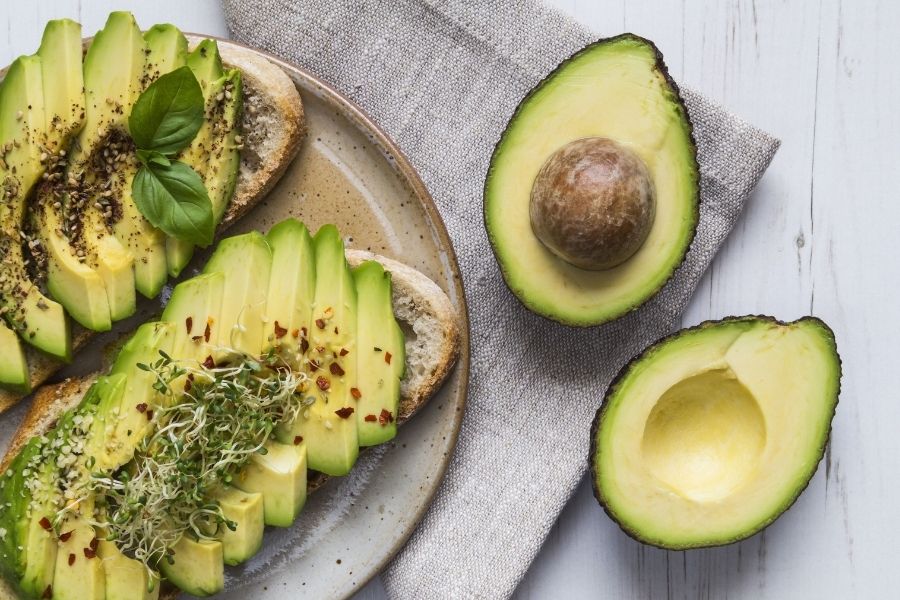Colder climates during winter are the best time for doing exercise and enjoying flavorful fruit and healthy vegetables. Healthy eating means healthy living, essential when our immunity becomes much weaken—nurturing of the skin and hair essential as winter could be harsh. Therefore, we bring you the best foods to eat in winter that will solve your problems. These winter foods are healthy, nutritious, and perfect for your body.
Healthy Foods To Eat In Winter
1. Carrot

During winter, sipping a glass of carrot juice in the morning or eating carrot salad is the best option to get nutrients. So, why is carrot juice good for health? It contains all essential vitamins and minerals, such as vitamin B6, potassium, phosphorous, etc., to boost immunity. The antioxidants present in the juice prevent skin degradation and make your skin healthy and glowing. Significantly, beta carotene and vitamin A content improves eyesight too.
2. Turkey

Turkey is one of the incredible foods to eat in winter. It contains a high amount of protein, making you feel fuller for longer and increase satiety. It maintains lean muscle mass and beneficial for people with diabetes as it stabilizes the insulin level. Amino acid tryptophan in turkey increases serotonin hormone level responsible for stabilizing the mood, feeling of well-being, and happiness. As research suggests, cold temperature itself causes depression too. You can make Turkey soup, a turkey sandwich with whole-grain bread are the best food items in the chilled season.
3. Potatoes

Potatoes belong to the list of healthy foods to eat in winter as they are used in various warming recipes to beat the cold. They are loaded with a good amount of vitamin C and vitamin B6, immunity strengthening vitamins, folate, and fibers. However, avoid fried potatoes for they come with potential adverse side effects, i.e., weight gain if they are eaten incessantly.
4. Citrus Fruits

Winter is the best season to have all types of fruits, mostly citrus fruits, as our body cannot produce and store vitamin C. Citrus fruits include lemon, lime, grapes, pineapples, oranges, tangerine, etc. They are juicy, bright-colored fruits that give a bunch of health benefits in chilled winter. They strengthen the immune power to fight against cough and cold. They are loaded with vitamin C, fiber, potassium, folate, which nourish skin and hair. They are excellent for relieving other health issues such as kidney stones, heart health, constipation.
5. Dark Leafy Greens

Leafy green vegetables include spinach, methi, broccoli, cabbage, lettuce, and kale. They are the best foods to eat in winter as they are fresh; we can make them in various ways like salad soup, etc. These vegetables offer numerous health benefits.
They increase energy levels by containing a decent amount of iron and building up the immune power. The higher amount of vitamins and minerals improve metabolism. They help improve the eyesight as they contain carotenoids like lutein and zeaxanthin and avoid night blindness. A good amount of calcium increases bone density and make it stronger. Veggies have many antioxidants, carotenoids, and flavonoids, helping in preventing cancer.
6. Broccoli

Broccoli deserves separate attention. Broccoli has an exceptionally decent amount of antioxidants, vitamins, minerals, fibers, folate, and potassium. Vitamin C stimulates collagen production, thus benefits the dry and flaky winter skin. Vitamin A content prevents skin damage due to sun exposure. You can try steamed or baked or delicious broccoli soup.
7. Nuts

Nuts, including peanuts, walnut, almond, pine nuts, are good for health in winter. Almond has many minerals, amino acids, and calcium, which reduce the risk of cardiac problems and detoxify the lungs. Walnuts contain protein, fat, minerals, vitamins, preventing cell aging, lowering down the cholesterol. Nuts mainly beautify the skin and hair, which require more attention in winter.
8. Eggs

An egg is touted to be the nutritious food on the planet containing a dense amount of nutrients. The best part of its providing various benefits, mainly in winter is the most likely season to fall sick. Eggs are the richest source of protein. Protein is the most important part of antibody production. These fighters fight against foreign invaders and prevent infections.
They have a good amount of fat and good cholesterol (HDL). These fats keep your body warm, protect organs, and support cell growth. So, you can enjoy the plate of the omelet in the chill morning to heat the body. Eggs provide a high concentration of vitamin D, boosting bone health. They contain zinc, a mineral that can relieve illnesses like cold and flu in winter—a significant amount of vitamin B6 and vitamin B12 build up the immune system to fight off infections.
9. Avocado

Avocado is one of the comfort foods to eat in winter, either smashed or sliced. It is jam-packed with nutritional supplements, including fibers, hearty fat, more than 20 minerals, and vitamins. Therefore, avocado is the unique blend of goodness for health and, most importantly, required to strengthen immunity.
You can make it in different avocado recipes. Make a pizza by adding an amount of egg, bacon, roast tomatoes, and smashed avocados. For a flavourful treat, toss some chunks of avocados with warming Moroccan spices. Also, bake it with some chicken and crispy potatoes and enjoy the dish on winter nights.
10. Legumes

Eating legumes in winter is the best, but why? They promote weight loss as they are loaded with good fibers and proteins, making your body fuller for longer and reducing hunger. We do feel a little more hungry in winter than in summer.
They improve digestive health because of fibers, which add bulk to the stool and relieve constipation. They maintain the blood sugar level as higher fiber content slows down sugar absorption into the bloodstream and effectively utilizes the insulin. They keep your heart healthy.
11. Beetroots

These bright red beetroots not only add color to your dish but help you remain healthy too. They are packed with beneficial phytochemicals and antioxidants, which prevent free radicals and slow down the aging process. Its green leafy tops also have vitamin C, beta carotene, calcium, and iron increase your hemoglobin level. You can enjoy beetroots in different variations like steamed, pickled, salad, or soup.
12. Pomegranates

These bright red pomegranates filled with antioxidants make your skin smooth and glowing during winter. Its anti-inflammatory properties block the enzymes responsible for joint pain and stiffness, thus recommended for the person with arthritis. Pomegranates help in strengthening the immune system and protecting against cancer and cardiovascular diseases. You can savor the glass of cocktails, juices, smoothies, or salads of this tart fruit.
13. Ginger

Ginger is referred to as a natural Ginger tea is the best soothing and warming beverage to avoid the cold and flu due to its antibiotic characteristic during winter. Its anti-inflammatory property helps cure arthritic pain because joints usually get stiffened in the winter months. Other benefits of ginger include stabilizing blood sugar, weight management, flawless skin, etc.
14. Turmeric

Turmeric, a golden spice, is probably one of the best foods to eat in winter due to its powerful healing benefits. Turmeric has curcumin, which is a powerful antioxidant. Turmeric works as an antioxidant and anti-inflammatory, boosting immunity and relieving joint pain, respectively. It also improves the skin glow and elasticity. We can make a healthy drink, such as Golden milk for cough, cold, and flu.
Read Also: 7 Soothing Warm Teas For The Winter Season







